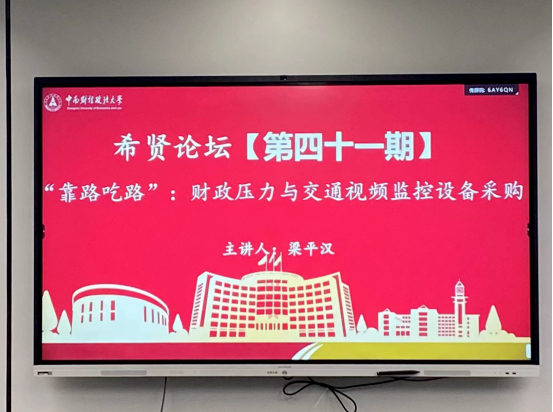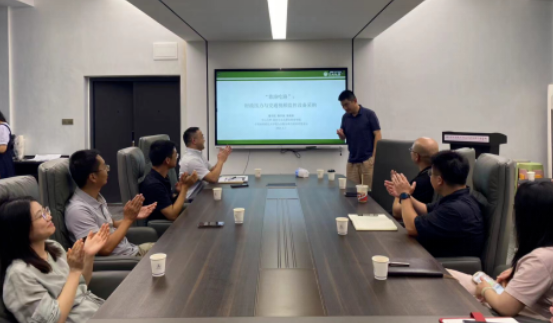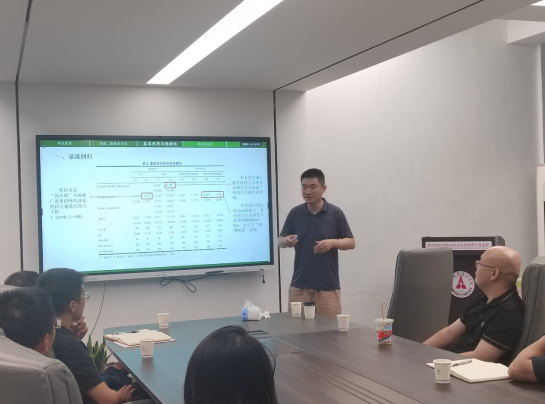
The 41st Xi Xian Forum, co-hosted by IIDPF and the School of Public Finance and Taxation, was successfully held on 7 September 2023 in Conference Room 119 of Wenqin Building. Professor Liang Pinghan from the School of Politics and Public Affairs Management of Sun Yat-sen University was the guest speaker of the forum and gave a keynote speech entitled: Relying on Traffic Fines to Generate Revenue: Fiscal Pressure and Procurement of Traffic Video Surveillance Equipment. The forum was moderated by Professor Lu Yuanping, Executive Director of IIDPF, and attended by more than 30 faculty members and students, including Professor Ye Jingjing, Associate Professor Zhao Ying, Associate Professor Zhang Ziyao of School of Public Finance and Taxation, and researcher Professor Wan Xin and Professor Wan Qian.

Is there a systematic intrinsic motivation for local governments to impose fines through the use of traffic surveillance in the face of rising fiscal pressures, and what are the economic effects of such "profit-seeking enforcement"? Existing studies have not yet provided systematic explanations and clear conclusions. Based on more than 4.4 million government procurement announcements on the China Government Procurement website, Professor Liang uses the 2016 comprehensive "Camp Reform" policy as an entry point, and uses double-difference and triple-difference models to explain the organisational logic of the local government's traffic monitoring installation behaviour. It is found that, firstly, when faced with fiscal pressure, in the national average sense, local governments significantly reduce their investment in traffic surveillance equipment. Second, in the triple difference results, a significant "traffic fine dependence" effect is found in the use of traffic monitoring by local governments. Specifically, local governments that are rich in traffic arterials significantly increase the installation of traffic monitoring equipment. This effect is more pronounced in places with poorer market institutional environments, lower fiscal transparency, and stronger promotion incentives for officials. Further analyses show that traffic surveillance investment significantly increases local confiscation revenues, but also leads to a significant increase in public complaints about traffic fines, which may be accompanied by a reduction in the number of newly registered businesses. Professor Liang's study examines local government behaviour under fiscal pressure from the new perspective of traffic surveillance installation and analyses its potential political and economic impacts.

Professor Liang gave a wonderful speech to the students and faculty present and also triggered in-depth thinking about the behaviour of local governments under fiscal pressure. In the discussion session, the participating professors exchanged and discussed related issues. The students also spoke enthusiastically and interacted actively around the research background and research design. Professor Liang's sharing promoted the communication and interaction of academic views between faculty and students, and created a strong atmosphere of academic research.
